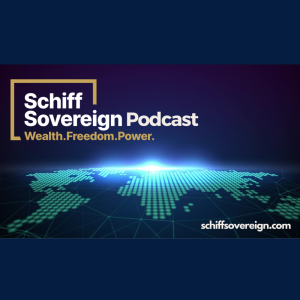
067: You don’t expect a disaster like this until it happens.
 2016-05-26
2016-05-26
No one likes to pay for insurance.
If you don’t smoke, if you go to the gym regularly, and if you generally eat well, it just might not seem worth it.
Especially when the average cost of insuring against just catastrophic health incidents can take up about 4% of your income.
But most of us do it anyway.
After all, paying small amounts over time feels a lot better than having to write a huge check when you’re at your worst.
It’s become the norm to take out insurance against just about every possibility—
We buy car insurance in case we get into a car wreck.
We buy house insurance in case our house catches on fire.
We buy life insurance in case we die sooner than expected.
However, there’s one huge threat to our livelihoods that very few insure themselves against: financial disaster.
In comparison to your house suddenly bursting into flames, financial panic is far more predictable and frequent.
Given that the average business cycle lasts about 6 years, the average person will see at least 10 recessions in their lifetime.
So while we may not know exactly the day or month that it will hit, we know it’s coming.
And unlike a heart attack, financial crises don’t come out of nowhere. They can be diagnosed ahead of time.
In today’s podcast as I do a physical on the United States’ economy, in which the vitals are showing serious signs of strain and weakness:
- Incomes have stagnated across the country, accompanied by a major decline in living standards
- The federal government’s cash balances are so low, that on some days it has less than some private companies
- Banks have made it a habit of holding very little cash reserves, leaving them vulnerable to any shocks to the system
- The Treasury has begun blatantly siphoning off funds from the Fed
- Hundreds of pages of regulations are being passed each day to make you less free
- The government and central bank are already stealing from you
Join me as I show how the decline in freedom, government bankruptcy, and an insolvent financial system are all related. I also cover several ways that you can insure yourself quickly and easily against all of this.
Listen in here.
More Episodes
 2023-03-24
2023-03-24
 2023-01-27
2023-01-27
 2023-01-13
2023-01-13
 2023-01-06
2023-01-06
 2022-12-02
2022-12-02
 2022-11-18
2022-11-18
 2022-11-11
2022-11-11
 2022-11-04
2022-11-04
 2022-10-28
2022-10-28
 2022-10-21
2022-10-21
Create your
podcast in
minutes
- Full-featured podcast site
- Unlimited storage and bandwidth
- Comprehensive podcast stats
- Distribute to Apple Podcasts, Spotify, and more
- Make money with your podcast
It is Free
- Privacy Policy
- Cookie Policy
- Terms of Use
- Consent Preferences
- Copyright © 2015-2024 Podbean.com




